This herb, native to the mountainous areas of southern China, Japan and South East Asia is receiving a lot of recognition for its use as an anti-aging tonic and adaptogen. The tasty tea made from the stems and leaves of this herbaceous perennial vine have 4 times more ginseng-like saponins than either American or Asian Ginseng. It has been used in Chinese Medicine to delay the aging process and increase energy.
Research in Japan shows that the herb has a powerful effect on numerous body systems. It has been used in Chinese medicine to maintain healthy blood pressure and cholesterol levels, enhance circulation, increase energy without being over-stimulating, improve focus and memory, support a strong immune system and can increase stamina and endurance for athletes
- Hypertension
- hyperglycemia
- hyperlipidemia patients
- patients with liver and gallbladder inflammation
- poor sleep
- obesity,
- cardiovascular
- endocrine disorders
Gynostemma, often referred to as “magical grass” or “miracle grass”, is the perfect morning beverage for the overworked individual, helping to reduce stress related tension and improve immune system functions.
We liken it to tulsi or holy basil tea, a common Ayurvedic herb used in India. Both tulsi and gynostemma are two of the few adaptogenic leafy herbs that are easy to prepare as a tea because they don't need to be decocted (simmered) and can be simply infused in hot water.
We liken it to tulsi or holy basil tea, a common Ayurvedic herb used in India. Both tulsi and gynostemma are two of the few adaptogenic leafy herbs that are easy to prepare as a tea because they don't need to be decocted (simmered) and can be simply infused in hot water.
Gynostemma is also slightly sweet, like tulsi, yet the flavor is quite different with a nutty, mildly bitter green tea-like taste. It has definitely become one of our personal favorites over the last few years.
Gynostemma pentaphyllum, or Jiaogulan (the Chinese name), is a five leafed climbing vine plant in the same family as melons and cucumbers. Although it is from the family Cucurbitaceae is does not bare edible fruit.
Jiaogulan(Gynostemma) is a perennial plant that can be planted and grown in moderate climates, classified under USDA zone 8, which includes Southern and Western coastal regions of the U.S. Most of the gynostemma today is imported from China but, if you happen to live in such mild climates, it can be easily grown in a garden and used fresh or dried as a tea infusion.
The first recorded notation of the plant was by the herbalist Li Shi-Zhen in 1578 who identified gynostemma for use in treatment of traumas and tumorous growths.
In the 1970's Jiaogulan was originally researched and studied by scientists for its sweet components and benefits as a natural sugar substitute. During this time it was discovered that the leaves actually contain high amounts of saponins, four of which are also found in panax ginseng root.
In the research provided by Dr. Masahiro Nagai and Dr. Tsunematsu Takemoto Gynostemma tea benefits were shown to not only include four identical ginseng saponins but also 17 other related saponins.
For this reason it is also called "southern ginseng" and is a more affordable alternative to the high price of some ginseng extracts. Today jiaogulan is known to have over 82 different saponin compounds, which is extremely unusual for a leafy green plant.
In many parts of Asia it is still regarded as a quintessential herbal tea to promote a healthy long life, enhancing immunologic, respiratory, neurological, cardiovascular, endocrine and metabolic systems.
In many parts of Asia it is still regarded as a quintessential herbal tea to promote a healthy long life, enhancing immunologic, respiratory, neurological, cardiovascular, endocrine and metabolic systems.
Gynostemma Tea Benefits
An Adaptogen Herb
There are only a number of leafy herbs that work as adaptogens and Gynostemma is one of them. In fact, the herb contains the widest spectrum of saponins out of all the plants varieties.
The primary active ingredients that attribute to these adaptogenic qualities are the saponins called gypenosides.
As an adaptogenic leaf, jiaogulan, helps the body adapt to stress and promotes equilibrium within the cells and vital organ systems.
Because of it's double-directional stress modulating activity it has either a calming effect on the central nervous system or an energy lifting one depending on the state of fatigue or over-excitement.
It is well known for its spirit-lifting effects and is great for those who suffer from depression.
Antioxidant and Anti-inflammatory
The gypenosides in Gynostemma tea maintain powerful antioxidant effects helping to boost the immune system by increasing the activity level and number of white blood cells.
Gynostemmaa tea benefits can provide antioxidants that protect the cell membranes from the negative influence of oxidation which can lead to chronic inflammation.
The antioxidants have been shown to reduce fatigue and stimulate the release of insulin. Jioagulan is also known in Traditional Chinese Medicine to clear heat, support clear thinking, calm the nerves, moisten the lungs as well as reduce inflammation.
Gynostemma for Weight Management
In Asia Gynostemma is extremely popular in assisting those in weight management programs and is known to be useful for those needing to loose or gain body weight.
One of the ways in which it helps individual’s loose excess weight is by accelerating the body’s metabolism. This is achieved through its actions at adjusting blood fat and blood sugar levels. In addition jioagulan naturally assists in the digestive process, helping to normalize bowel movements and cleanse the intestinal tract.
Saponins are known to have foaming soap-like qualities and were originally used as an early source of detergents in many cultures around the world. The high saponin content in Gynostemma, in a sense, acts as a cleanser as it moves through the digestive system, ridding the body of wastes and toxic microbes.
Saponins are known to have foaming soap-like qualities and were originally used as an early source of detergents in many cultures around the world. The high saponin content in Gynostemma, in a sense, acts as a cleanser as it moves through the digestive system, ridding the body of wastes and toxic microbes.
Gynostemma tea benefits provide direct energy conversion of carbohydrates which is specifically helpful for athletes. It is also known to assist body builders or underweight people by increasing their capacity to gain lean muscle mass.
Improves Cardiovascular Health
Gynostemma tea benefits also help to normalize blood pressure and stabilize the heart rate. Acting as a natural vasodilator, regular consumption of the tea or extract improves cardiac efficiency by increasing the flow of blood and oxygen to the circulatory system.
The saponins in gynostemma pentaphyllum are also known to be helpful for atherosclerosis, reducing triglycerides and lowering cholesterol by preventing it from being absorbed by the body.
A study was conducted in Japan whereby 30 people experienced an 85% decrease in LDL cholesterol, commonly referred to as the "bad" cholesterol.
Additional studies show that it reduces the accumulation of blood platelets, thins the blood and decreases plaque buildup.
Additional studies show that it reduces the accumulation of blood platelets, thins the blood and decreases plaque buildup.
Precautions: If you take blood thinners or are on heart medication it is recommended that you consult your physician before using this herb.
Gynostemma Tea Benefits List
- Acts as an adaptogen and stress reducer
- Enlivens the body but does not contain caffeine
- Possesses anti-inflammatory properties via its immune supporting affects
- Improves respiratory functions
- Promotes a sense of peace and well being
- Acts as a soothing digestive aid
- Known to be beneficial for weight management
- Helpful for cardiovascular health and improved circulation
- Supports healthy normal liver functions
- Contains anti-aging antioxidants
Other Nutrients in Gynostemma Pentaphyllum (Jiaogulan)
- iron
- magnesium
- zinc
- selenium
- amino acids
- phosphorus
- potassium
sources:http://www.superfoods-for-superhealth.com/
http://en.wikipedia.org/wiki/Gynostemma_pentaphyllum








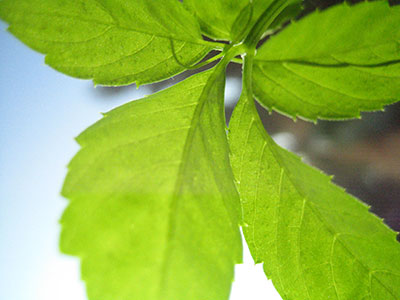
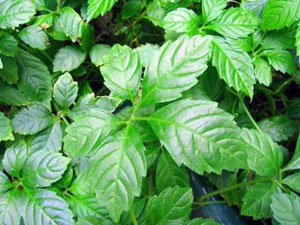
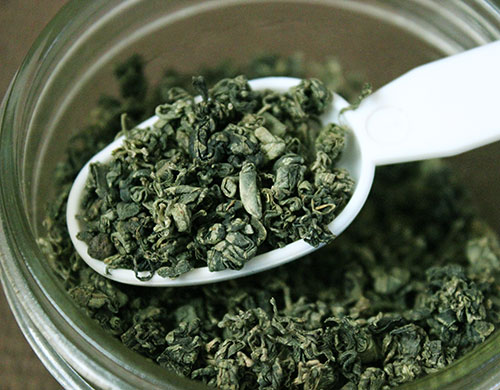
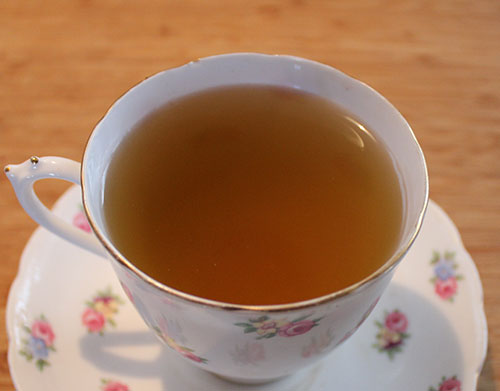
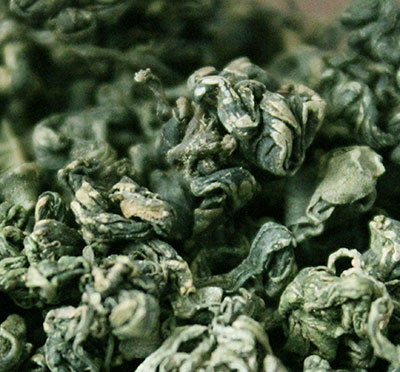

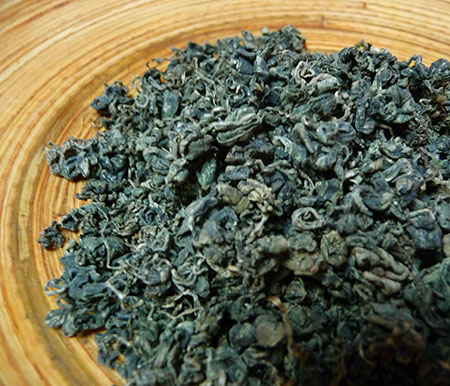




No comments :
Post a Comment